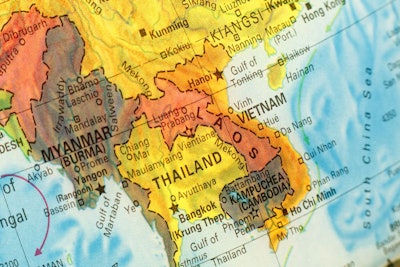
NPPC says Thailand has a de facto ban on US pork imports through high tariffs and several non-tariffs barriers
The U.S. has suspended US$817 million in trade preferences for Thailand based on its restrictions to market access for pork products, the Office of the United States Trade Representative (USTR) announced on October 30.
According to the National Pork Producers Council (NPPC), the United States is Thailand’s No. 1 export market, with almost US$4 billion of products annually sent to America under the Generalized System of Preferences (GSP) program. Yet Thailand maintains a de facto ban on U.S. pork imports through high tariffs and several non-tariffs barriers. Thailand does not accept uncooked pork and pork offal from the United States, and it rarely, if ever, grants import licenses for U.S. pork. Even if such permits are granted, Thailand imposes a fee for imported pork equal to about US$220 per metric ton compared with US$7.50 per metric ton for domestically produced pork.
The NPPC petitioned the USTR in 2018, asking it to review Thailand’s eligibility for the GSP program, which offers duty-free treatment to certain goods entering the United States.
“For years, Thailand has taken full advantage of special U.S. trade benefits, while imposing a completely unjustified de facto ban on U.S. pork. This is hardly a reciprocal trading relationship,” said National Pork Producers Council (NPPC) President Howard “AV” Roth, in a statement. “We thank the administration for taking this action and hope it results in fair access to the Thai market for U.S. hog farmers.”
GSP, the largest and oldest U.S. trade preference program, is designed to promote economic development by allowing duty-free entry into the United States for 3,500 products from the 119 designated beneficiary countries and territories. To remain eligible for these advantages, beneficiary countries must comply with 15 statutory eligibility criteria, including taking steps to afford internationally recognized worker rights, providing adequate and effective protection of intellectual property rights, and assuring equitable and reasonable access to its markets.
“Today’s announcement demonstrates the effective use of the GSP program to improve labor standards and help U.S. businesses and workers succeed,” said U.S. Trade Representative Robert Lighthizer. “It also demonstrates the Trump administration’s commitment to robust monitoring and enforcement of our trade preference programs and underscores that when countries do not meet the congressionally mandated eligibility criteria, we will take action by limiting their preferential duty-free access to the U.S. market.”
The decision will become effective on December 30.











